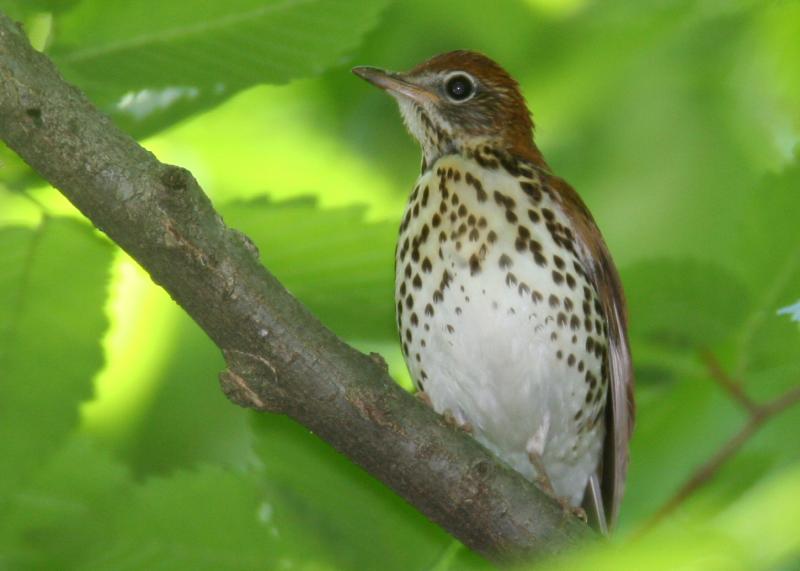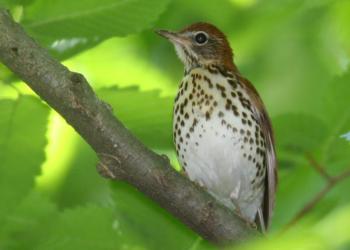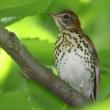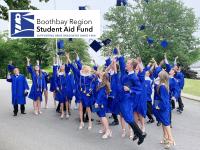The Mystery of a 10 p.m. Late June Wood Thrush Call
At 10 p.m. on June 27, while out walking the dog, we very clearly heard a single, rather loud nocturnal flight call of a wood thrush overhead in the dark. Hearing any bird calling as it flies over at night in migration always seems like a miracle even though we have experienced it thousands of times.
But hearing a wood thrush this particular night was especially fascinating for several reasons.
First is the fact that wood thrushes are not particularly common here anymore. Wood thrushes are a declining species, having declined at the continental level by about 50% since 1966 and even more steeply in Maine, with current populations estimated at only 5% of what they were in the 1960s. We haven’t heard the beautiful fluty notes of a singing wood thrush anywhere very close by, although we do know that there are scattered birds found in summer within 5-10 miles from us.
The second reason that this nocturnally migrating wood thrush was particularly interesting was because of the date that we heard it. We hear some nocturnally migrating wood thrushes over our house in spring and fall migration. In the spring, this typically would occur in early May. In the fall, we might begin hearing the first wood thrush nocturnal flight calls in late August, continuing into September. The wood thrush nesting and rearing period extends from late May through July for some birds.
Hearing one of these birds in migration in June, therefore, is unusual!
Some of our friends who listen to and record nocturnal migrant birds have sometimes heard various species overhead apparently in migration during the summer breeding season. One friend noted black-billed cuckoo and yellow-billed cuckoos during the summer not infrequently around Ithaca.
The mystery is whether these are birds that are in full-scale migration or engaging in some more localized exploratory movements. Are they birds that had a failed breeding season and are already headed south again? Are they birds that delayed their northbound migration because of sickness or inexperience and are just not catching up? Are they young birds in their first breeding season that were unsuccessful in finding a mate in the first place they tried and are moving around to try their luck somewhere else?
There are probably lots of other hypotheses as well for why we would have heard this wood thrush emitting its flight call overhead at 10 PM in late June here in Maine.
These are the wonderous mysteries that make birds and the natural world so endlessly fascinating. We hope you, too, are finding joy in in he beauty and intricacy of the nature around us.
Jeffrey V. Wells, Ph.D., is a Fellow of the Cornell Lab of Ornithology and Vice President of Boreal Conservation for National Audubon. Dr. Wells is one of the nation's leading bird experts and conservation biologists and author of the “Birder’s Conservation Handbook.” His grandfather, the late John Chase, was a columnist for the Boothbay Register for many years. Allison Childs Wells, formerly of the Cornell Lab of Ornithology, is a senior director at the Natural Resources Council of Maine, a nonprofit membership organization working statewide to protect the nature of Maine. Both are widely published natural history writers and are the authors of the popular books, “Maine’s Favorite Birds” (Tilbury House) and “Birds of Aruba, Bonaire, and Curaçao: A Site and Field Guide,” (Cornell University Press).
























